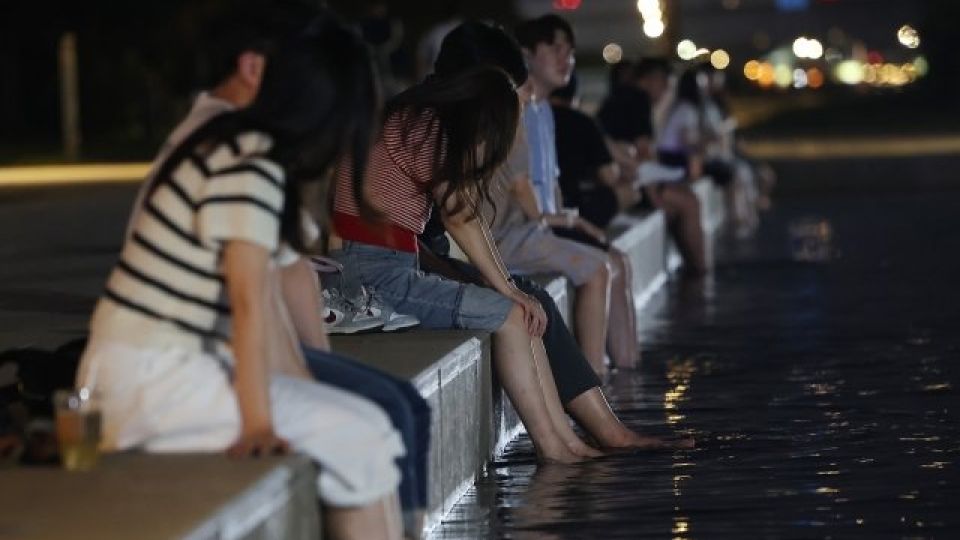September 12, 2024
SEOUL – Summertime temperatures have persisted and likely will for some time, with the state-run weather agency projecting the current late heat wave to continue.
According to the Korea Meteorological Administration’s forecast, temperatures in Seoul may rise above 30 degrees Celsius into late September. The nation’s capital also saw its first-ever heat wave advisory in September on Tuesday.
Korea defines “heat wave days” as when the daily high is 33 degrees Celsius or higher. Seoul set the new record for the latest heat wave in history Wednesday, with a heatwave advisory being issued as the temperature rose as high as 35 degrees.
Seoul, the nation’s most populous city, also set the record for the latest tropical night ever recorded on Tuesday, breaking the previous mark set on Sept. 8, 1935. The mark in 1935 was before the nationwide weather tracking system was established in 1973, but authorities have been observing the temperature in major regions since 1908.
A tropical night is recorded when the lowest temperature from after 6 p.m. to 9 a.m. does not dip below 25 C.
According to KMA data, Seoul had recorded its 42nd tropical night of the year as of Wednesday morning, which was the latest tropical night. The total number of tropical nights in the city far outstrips 32 in 2016, which had been previously been the most recorded.
Seoul has seen a total of 30 heat wave days until Tuesday, and the figure will be updated to 31 once the Wednesday data is reflected to the official tally on Thursday morning. This figure is already second only to 35 recorded in 2018.
But there is still the possibility of a new record being set in this category as well, if fall this year turns out to be unseasonably hot, as projected.
This fall will potentially be the hottest in recorded history in Seoul, along with the possibility of the hottest September ever. The previous record for the highest September temperature was set on Sept. 2, 1939, with a blazing hot 35.1 C.
Several of these records may be broken this year, with the KMA projecting summer-level weather potentially through the end of the month. The relentless heat is expected to subside at least a little with impending rainfall this week, but the heat is projected to come charging back this weekend, as the nation readies to celebrate the extended Chuseok holiday.
Koreans endured one of the hottest autumns of all time last year, when the average temperature in the country for the entire season — defined as from September to November — marked 15.1 degrees. This was third highest since the government started tracking the weather nationwide.
The average nationwide temperature for September last year was 22.6 degrees, which was the highest of all time.


